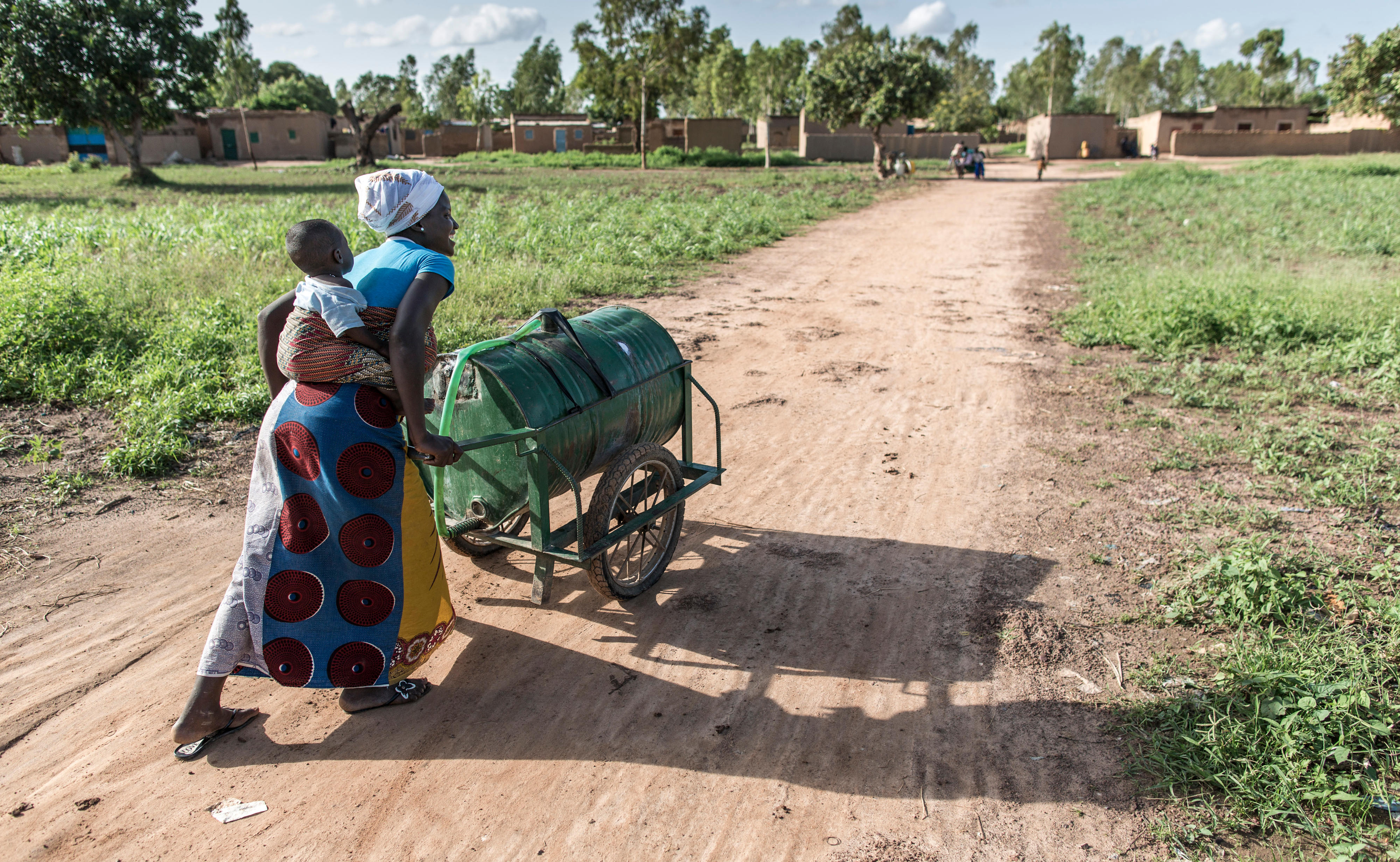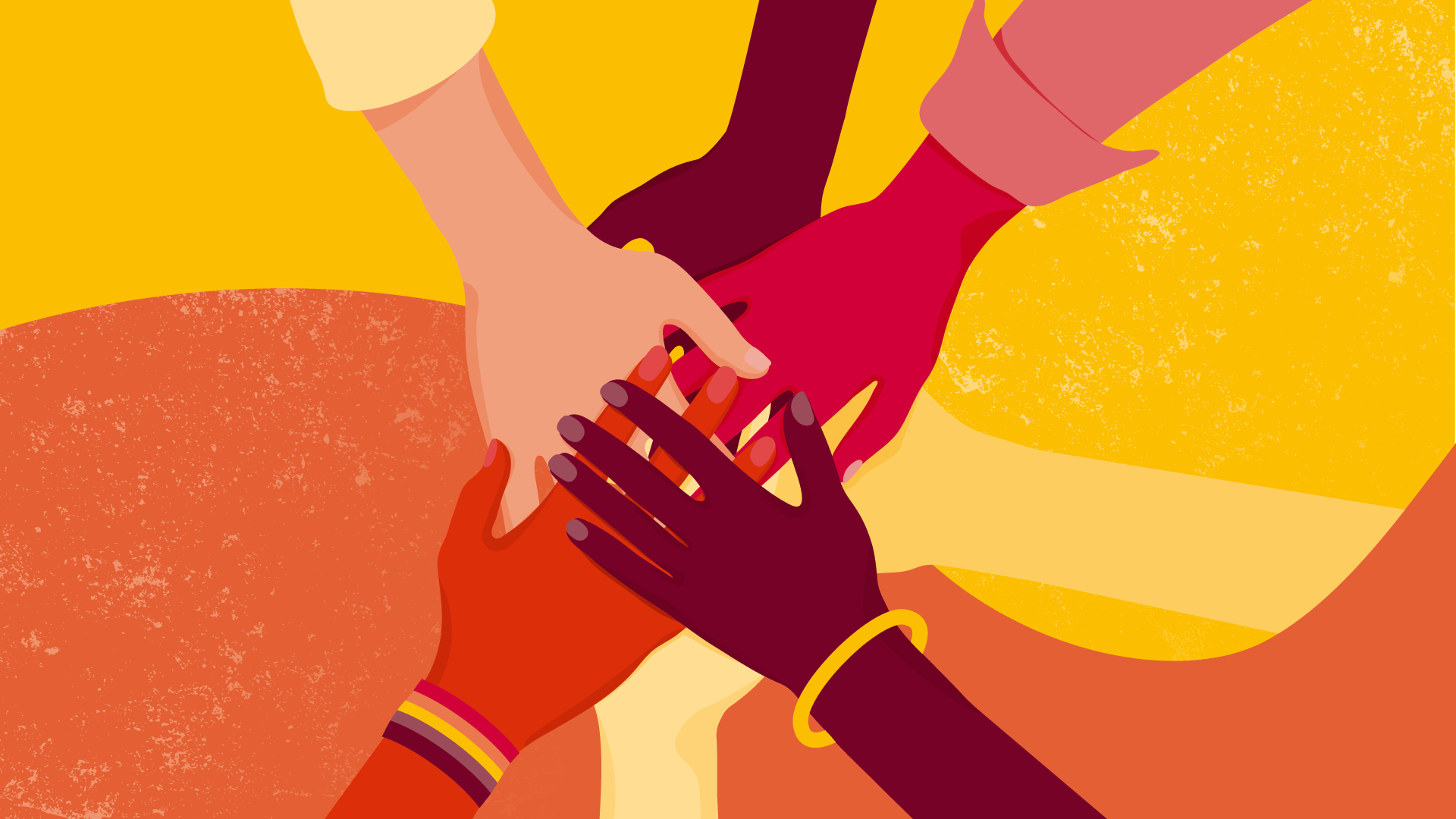Water and gender Water, sanitation and hygiene for all
A woman pushes a drinking water tank that she has filled at a public water tap in Ouagadougu, Burkina Faso.
In many countries, it is the traditional role of girls and women to fetch household water. Often, they have to make daily trips of several kilometres. This takes up time and energy which they could spend on other activities, such as going to school or doing paid work. Moreover, carrying heavy water containers every day can lead to health problems, especially for pregnant women and new mothers. The long trips also increase women's risk of experiencing sexual violence. Inadequate sanitation, especially the absence of private toilets, is another factor that poses specific health and safety risks to women and girls.
In many cases, women are also responsible for financing the family's water supply – for household, farming, and health purposes. However, it is still rare for women to enjoy equal control over this vital resource. Worldwide, women make up less than 17 per cent of the water sector's total workforce. They are significantly underrepresented in many management and decision-making processes, such as those in water user committees and utilities.
These inequalities not only have a negative impact on the achievement of SDG 5 (gender equality), they also impede progress on other Sustainable Development Goals (SDGs) of the 2030 Agenda, for instance poverty reduction (SDG 1) and food security (SDG 2), health (SDG 3) and education (SDG 4), and decent work and economic growth (SDG 8) and peace and justice (SDG 16).
German activities
In order to make headway on gender equality, the BMZ supports the inclusive, gender-transformative expansion of water and sanitation services. In these efforts, it gives special attention to the interfaces between water, health, education, and food security.
In addition to its support for infrastructure development in the water and sanitation sector, the BMZ also encourages a new way of thinking in the labour market. BMZ projects seek to strengthen the role of women as skilled workers and managers in the water sector, for instance through vocational training programmes and career advancement programmes for young people, and through the establishment of women's networks.
Menstrual health and hygiene
An estimated over 600 million girls and women worldwide do not have access to sanitation facilities or hygiene products during menstruation. This means that they cannot manage their menstrual cycle in a dignified, healthy way. Moreover, in many countries they are considered “unclean” during the period of menstruation, resulting in their social exclusion.
On top of this stigma, there is a lack of safe and functioning toilet and washing facilities at education facilities and at the workplace, and a lack of affordable hygiene products. As a result, many girls and young women stay at home during menstruation, meaning that they are absent from school, work and social activities for several days a month. So the lack of infrastructure has a direct impact on their education and job opportunities and, thus, on family income and nutrition.
Overcoming the taboos around menstruation
Menstrual health and hygiene is an important part of the BMZ's à feminist development policy. The Ministry is working to overcome discriminatory social structures and norms and to reduce stigma. To that end, the BMZ supports education campaigns in social media and works with local influencers. They are helping to reach young people of all genders, raise awareness of menstruation, and overcome social taboos.
The #LetsTalkPERIOD campaign has successfully been implemented in Albania, Nepal and the Philippines and is now under way in several of the BMZ's African partner countries. It complements the Ministry's traditional work on menstrual health and hygiene, such as information campaigns, the distribution of hygiene items, and the improvement of sanitation facilities at schools and other public facilities.
At enterprises, the BMZ supports innovative approaches so that menstruation will be no barrier for the employment of women. One partner company is “Mela for Her” in Ethiopia, which is working to end “period poverty”. It produces affordable reusable menstrual pads, thus supporting girls and women who otherwise would have no access to hygiene products or would be unable to afford them.
As at: 13/06/2024


